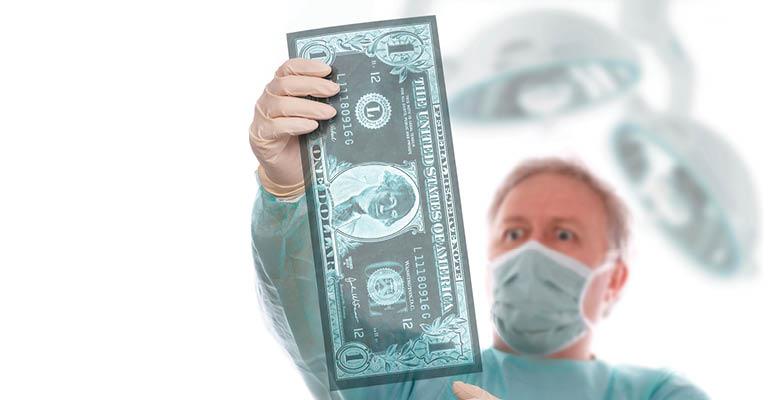As the COVID-19 crisis set in, the consensus among commercial real estate pros was that the medical office sector would be well-positioned relative to other asset types. After all, if anything is essential amid a pandemic, it is healthcare.
That has turned out to not entirely be true.
While many medical office tenants have remained open and operating with heightened health measures, either voluntarily or by state edict, Americans largely postponed elective procedures. That’s put a crimp on revenues for medical office tenants, causing some to shut down and layoff workforces. In April alone, about 1.4 million healthcare workers were laid off because of the decline in revenues from canceled procedures. In all, one-third of medical office tenants have suspended or several limited operations, according to the Revista 2020 Stakeholder Survey from April 2020.
Practices hit the hardest in the pandemic include dentistry, dermatology, and ophthalmology, with dialysis, emergency medicine, and oncology impacted the least, according to JLL.
In April, offices of dentists lost 503,000 jobs. Offices of physicians lost 243,000 jobs, according’s CoStar’s analysis of federal employment data. Offices of dentists and physicians are two of the three largest occupiers of medical office space, with the other being general medical and surgical hospitals.
Many of these are small businesses that will need rent relief or government aid—or both—to make it through the crisis. They have a median cash buffer of just 30 days, says Kevin Cody, senior consultant at Costar Group. However, “compared to retail and restaurant small businesses, small businesses in healthcare services are positioned much better financially to weather this hit to cash flow.”
About a third of medical tenants (32 percent) have inquired about rent relief and another quarter (25 percent) have inquired about rent abatement, again according to the Revista survey.
So does that mean the sector is in for prolonged pain? Not necessarily. Some may be forced to close permanently, Cody says. But unlike other sectors, where the recovery may be slow and arduous, medical office properties are positioned to bounce back rapidly.
“Many of these lost jobs are furloughed employees, which is a silver lining and suggests they could have a faster than expected return to work when offices reopen,” Cody says.
“This will pass,” adds Alan Pontius, senior vice president and national director of the office and industrial division for Marcus & Millichap. “If anything we anticipate pent-up demand… we [as a society] are large 'consumers' of medical services and have had to delay a large number of visits for a wide variety of consultations and procedures.”
The business of renting space to medical offices began the crisis in a position of relative strength. The percentage of medical office space that has been occupied has ranged from 91.5 percent to 92.5 percent in the U.S. over the last 10 years, according to Revista.
"We have not heard of any medical office buildings having to close as a result of COVID-19," says Chris Bodnar, vice chairman of Healthcare Capital Markets at CBRE. "In fact, the publicly traded health care REITs have collected virtually all of their April rents."
The businesses that rent medical office space are already showing signs that they are likely recover relatively quickly from crisis caused by the coronavirus as the U.S. economy begins to re-open for business. Early re-entry reports show dentistry, in particular, is rebounding quickly, according to JLL.
So long-term, the fundamentals that positioned medical office so well coming into the crisis will win out.
The demand for medical office spaces has grown steadily over the last decade, as the population of the U.S. overall has grown—and the number of older people in particular. That has created a growing need to medical services. Also, a growing amount of medical services are now provided as less-expensive “outpatient” care, according to analysis by JLL.
“A medical tenant is more desirable for landlords compared to other retail tenants that are more susceptible to a prolonged recession or to new social distancing implementations,” adds Doug Ressler, manager of business intelligence for Yardi. “We are not seeing plummeting asking rates, it seems like many are digesting the current situation as it continues to evolve.”





